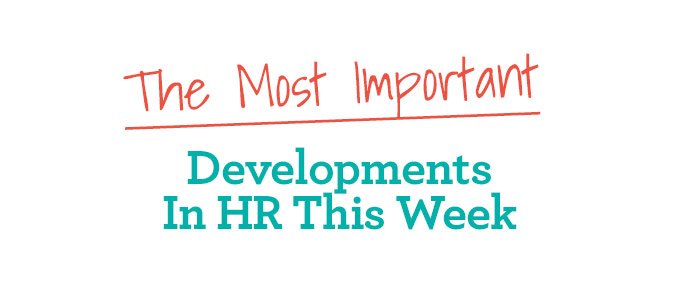
Inc. magazine teamed up with Quantum Workplace to survey employees nationwide to compile their Best Workplaces list, and released the results this week. Survey questions included trust in senior leadership, career development, change management, benefits, and perks. The result? Employees love them some perks. Of the 285 companies that made the Best Workplaces list, all offered good health care and employer-matching 401(k) plans. But most went further than that. A lot further. Forty-nine percent of the Best Workplace companies offer unlimited time off. Seventy-five percent, paid paternity leave. And 159 of 285 companies on the list offer company trips — one flew all of its employees to Iceland for four nights. Nearly half allow employees to bring their pets to work. Sixty-two percent have beer fridges. The takeaway: The best places to work get creative with their perks. Inc.


#MeToo isn’t just for the entertainment industry and politics. It has sparked a firestorm of complaints at businesses nationwide, according to a report on NPR this week. They talked to the CEO of SHRM, Johnny Taylor, who said it has “created a level of HR activity like nothing we’ve ever seen.” He was speaking recently to a room full of HR pros, and asked how many of them were dealing with #MeToo issues. The answer? 100 percent. It’s significant for many reasons, not the least of which is, for years, decades even, HR was part of the problem, not following up on sexual harassment complaints, pushing them under the rug, quietly settling. It’s time to look in the HR mirror and fix that. NPR


Finally, we’re going to find out what the new rules are defining as a “joint employer.” The National Labor Relations Board is set to rule on this issue by the end of summer. This, from a letter the board’s new chairman sent to three U.S. senators this week. It’s all about the much-maligned Browning-Ferris case, which threatens to define franchisors as “joint employers.” It has the franchise industry on high alert because it could make them liable in labor disputes on the franchise level. Not cool with them. The NLRB called the joint employer issue one of the most critical issues in labor law today. We agree. Franchisor or franchisee, this has the potential to change the game. Nation’s Restaurant News


Since 2005, the U.S. has seen a 115 percent increase in the number of employees who work from home at least half the time. Let’s take a look at that. The job market is tougher than ever before. Companies are all about hiring and retaining great people. Those great people are increasingly looking for perks in order to take a new job or stay at the one they have, and the perk of working at home some of the time is high on the list of desirables. That’s all well and good, but for HR, it can be a delicate dance. Not all jobs in any given company can be done from home. So how is the receptionist going to feel when half the staff is able to work from home in their yoga pants? HR needs to be the buffer here, finding creative ways to make office employees feel appreciated. HR Dive


After this week’s ruling from the Supreme Court that a Colorado baker could refuse to make a wedding cake for a gay couple, business owners and patrons nationwide wondered what, exactly, it meant. Were the Supremes sanctioning discrimination? What would come after that? Would this migrate to larger businesses? Would it become an HR problem? As it turns out, no. The bakery won the case on very narrow grounds. But it highlighted the battle between gay rights (or, everyone’s rights), the free practice of religion, and those who want to cloak discrimination in the free practice of religion. We have a feeling this isn’t over, and it might spill into your HR department sometime soon. Workforce










